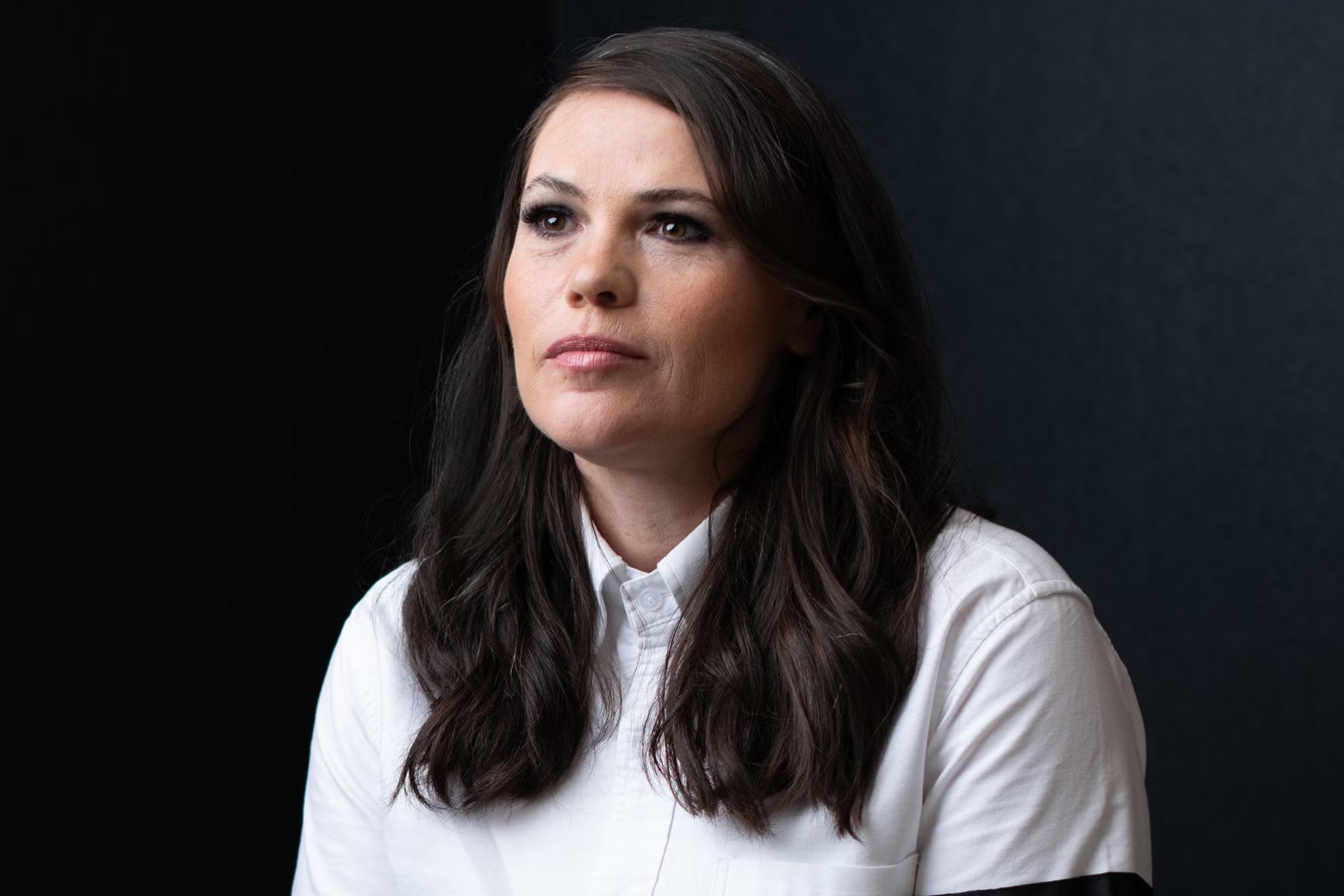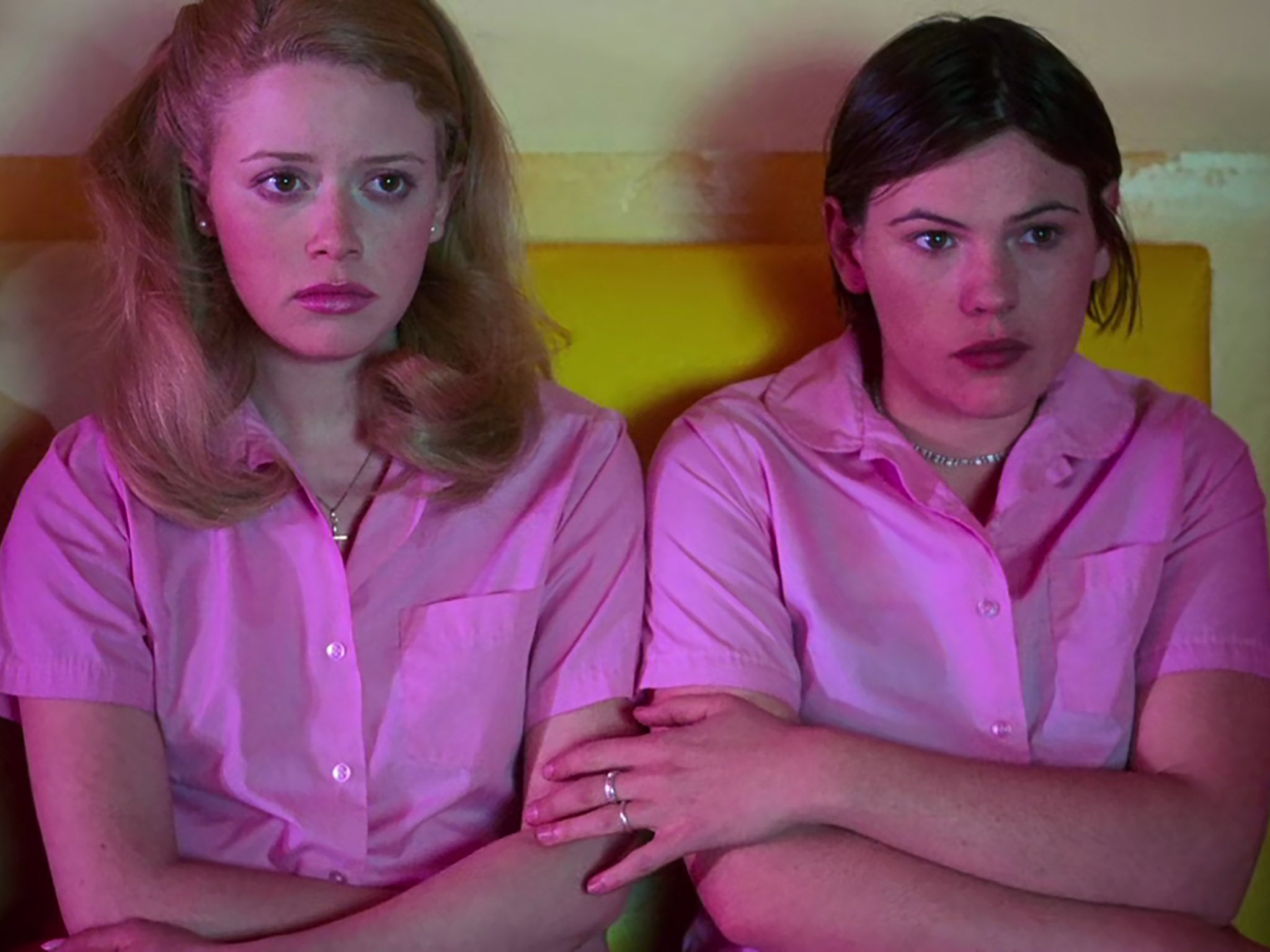Clea DuVall: ‘I came out at 16, but until I was in my thirties I was just kind of surviving’
The star of ‘But I’m a Cheerleader’ and ‘The Faculty’ has collaborated with indie-pop duo Tegan and Sara on a moving teen drama called ‘High School’. She talks to Adam White about adolescence, being closeted in the public eye, and what it means to be a living come-to-Jesus moment for a generation of baby gays


Your support helps us to tell the story
From reproductive rights to climate change to Big Tech, The Independent is on the ground when the story is developing. Whether it's investigating the financials of Elon Musk's pro-Trump PAC or producing our latest documentary, 'The A Word', which shines a light on the American women fighting for reproductive rights, we know how important it is to parse out the facts from the messaging.
At such a critical moment in US history, we need reporters on the ground. Your donation allows us to keep sending journalists to speak to both sides of the story.
The Independent is trusted by Americans across the entire political spectrum. And unlike many other quality news outlets, we choose not to lock Americans out of our reporting and analysis with paywalls. We believe quality journalism should be available to everyone, paid for by those who can afford it.
Your support makes all the difference.Parents would sidle over to Clea DuVall a lot 20 years ago. “We watched your movie,” they’d tell her. No title was mentioned. Not ever. But she always knew which one they were talking about. “There was always lots of subtext to it,” she recalls. “‘We watched your movie. It was very important to our daughter.’” Sometimes those daughters were hovering quietly nearby. Probably kicking themselves later on that they were too tongue-tied to say anything. The movie was But I’m a Cheerleader; the 1999 gay conversion camp romcom was to turn DuVall into a living come-to-Jesus moment for Y2K’s baby lesbians. “Those were the times where…,” she smiles, trailing off. “Like, OK, this is what it feels like to do something that matters.”
If you were to line up the most important queer iconography of the late Nineties, DuVall would slot in somewhere between Leonardo DiCaprio’s Titanic hair, the cast of The Mummy, and the “I’ll Make a Man Out of You” number from Mulan. In movies like The Faculty, Girl, Interrupted and, yes, But I’m a Cheerleader, she embodied louche, appealing contempt: wallflower by way of a rock star. Her career has been a long, twisty one – indelible supporting turns in Argo and Zodiac; a run on Veep as Julia Louis-Dreyfus’s deliciously stone-faced daughter-in-law; directing and co-writing Kristen Stewart’s big, gay Christmas romcom Happiest Season – but it’s those early parts that sparked a legacy of queer cool. Now, DuVall has co-directed and co-written a coming-of-age TV series called High School. Its 21-year-old stars – Californian twins Railey and Seazynn Gilliland – had no idea who she was when she cast them, having spotted them on TikTok. But if DuVall had revoked their gay cards there and then… well, she’d have been well within her rights.
“If I was on The Office, they’d know who I was,” DuVall jokes today, between sips of an iced coffee. “Railey asked me multiple times, ‘Are you on TV?’ And I’m like, ‘Yes! I’m on TV, stop asking me that!’” The 45-year-old is sitting in a black designer suit in a London hotel promoting High School. The Amazon Freevee series is inspired by the indie-pop twins Tegan and Sara and their 2019 memoir of the same name. Beyond the perfection of this specific trio coming together as collaborators – it’s basically Avengers: Endgame for lesbian icons of the Noughties – it’s also resulted in one of the year’s best TV shows.
“The original book was the first time I’d read something that felt really representative of my queer coming out and coming-of-age,” DuVall says. “Even as a woman in my forties it spoke to me.”
The Gillilands play the young Tegan and Sara Quin, teenagers growing up in Calgary, Canada, with a stressed mum (How I Met Your Mother’s Cobie Smulders) and absent dad. Both girls are having separate, private queer awakenings, as well as taking their first steps into music. In every episode, DuVall recreates the book’s moving flips of perspective between both sisters while lending the show a warm, impressionistic visual sheen. It’s quietly wonderful; a lot of time is spent with characters crafting alibis and heading to concerts when they ought to be studying, or experiencing hushed pangs of sexual attraction in between homework meltdowns. In other words, it’s from the My So-Called Life school of teen dramas, only with two yearning, confused Claire Daneses instead of one.
Unlike Tegan and Sara, who remember every bit of their adolescence with impressively forensic detail, DuVall seems to have blocked hers out. “I came out at 16,” she says. “That was something I remember. But honestly, until I was in my thirties I was just kind of surviving.” She was a shy teenager at a performing arts school in Los Angeles who loved acting and writing. “I would write poems, sci-fi stories, love stories,” she says, with a slight wince. “Always with a guy and a girl but always wanting to make them both girls.” Back then, gay representation was scarce. “All my heroes were people I wished were gay but weren’t. I was obsessed with PJ Harvey, Courtney Love, Liz Phair…” She sighs, fondly. “Ahh, Justine from Elastica… I was like, ‘So you’re not gay? Are you suuuure you’re not gay?’ Being a teenager was me just wishing the people I most admired were like me.”
Once DuVall started acting professionally at 18, she wound up in lots of things with an obvious queer sensibility – she’s remarkable in an early episode of Buffy the Vampire Slayer, for instance, as a girl so ignored by her classmates that she literally turns invisible – but was herself racked with insecurity. She was out only to close friends and family, the idea of the world knowing about her sexuality leaving her terrified. “I was very closeted and very afraid of people finding out I was gay,” she says of her early career. “It was the Nineties, there was no conversation about sexuality – you were just not going to talk about it.”

The cultural landscape of the time only made But I’m a Cheerleader feel more radical. A romantic, pastel-coloured satire of conservative America – and featuring RuPaul as a lecturing ex-gay, no less – it cast DuVall as Graham, the most rebellious and sexually outspoken teenager at the “True Directions” conversion camp. Graham is sensual, cynical and occasionally mean; a recipe for disaster for her eager-to-be-straight campmate Megan (Natasha Lyonne). The film was, at that point, the most overtly gay movie DuVall had been in, and at first she didn’t realise that it would put her sexuality under a microscope. Or somehow invite journalists to enquire about her personal life. “It was dangerous for me,” she says. “It was such a scary time. Once it came out and we started the press cycle for it, I remember feeling like, ‘Oh s*** – I need to hide, I need to stop.’”
In an interview for Out Magazine in 1999 that pointedly doesn’t discuss her sexuality, there’s a bit of a disconnect. The author describes DuVall as “demure”, “shy”, practically hiding behind her fringe. Lyonne – today DuVall’s long-time BFF – spends much of the interview worrying that she’s nowhere near as cool as her co-star. Which is saying something, since Lyonne seems like she came out of the womb dressed in a leather jacket and smoking a rollie. Was it the real her?
“I was very shy,” DuVall says today, “but I was also probably guarded because I was talking to Out Magazine. I’m sure there was a conversation beforehand where [my publicist] was like, ‘Don’t bring that up!’” That time in her life makes her sad now. “So many opportunities came to me because of [But I’m a Cheerleader] that I didn’t take because I was afraid.”
It was like I was in a cocoon getting the sustenance I needed to survive, while also figuring out who I really was
In the wake of the film, DuVall dived under the proverbial covers. She did few interviews, largely avoided gay roles. Outside of Zodiac and Alejandro González Iñárritu’s 21 Grams, she hit a career lull. She credits it to a kind of paralysis: not wanting to lie about herself, but also too frightened to come out publicly. “I could either try to convince people that I was not who I am, or embrace who I was and come out,” she says. “So much pain comes from not accepting yourself for who you are. I’ve seen so many people bending over backwards and tying themselves in knots. I’ve had friends die because they were trying so hard to be something that they weren’t. Eventually you buckle under the weight of that.”
DuVall came out publicly in 2016, casually dropping a mention of her girlfriend – and now wife – during a panel discussion at the Sundance Film Festival. It coincided with a new chapter in her career as a writer and director. “The time that it took to [come out] helped shape the person that I’ve become,” she says. “I feel settled. I feel more at peace with myself.” She glances over proudly at the big High School poster to her left, with the Gillilands on it posing stroppily in a messy bedroom. “I was so quiet back then and a big observer, but I think I needed to allow myself to grow before I could be open. It was like I was in a cocoon getting the sustenance I needed to survive, while also figuring out who I really was. And who the best version of that person was.”

This past June, DuVall attended an outdoor screening of But I’m a Cheerleader in Los Angeles, where 4,000 eager fans gathered in the open air to watch it together. For DuVall, it was the first time she’d seen it in about 15 years. “It was so cool to see it again and see what it’s become for people,” she says. “But also watching it, like… I was so cute! Why was I so uncomfortable all the time? What I wouldn’t give to still look like that person…”
Graham’s still around on some level, though. “She’s very, very me. I put so much of myself into her, to make her a lesbian character more like the girls that we all know and not just this ‘idea’ of what a lesbian is like.”
She looks wistful. After all, it was a very important movie.
‘High School’ is streaming now on Freevee via Prime Video, with new episodes released Fridays



Join our commenting forum
Join thought-provoking conversations, follow other Independent readers and see their replies
Comments